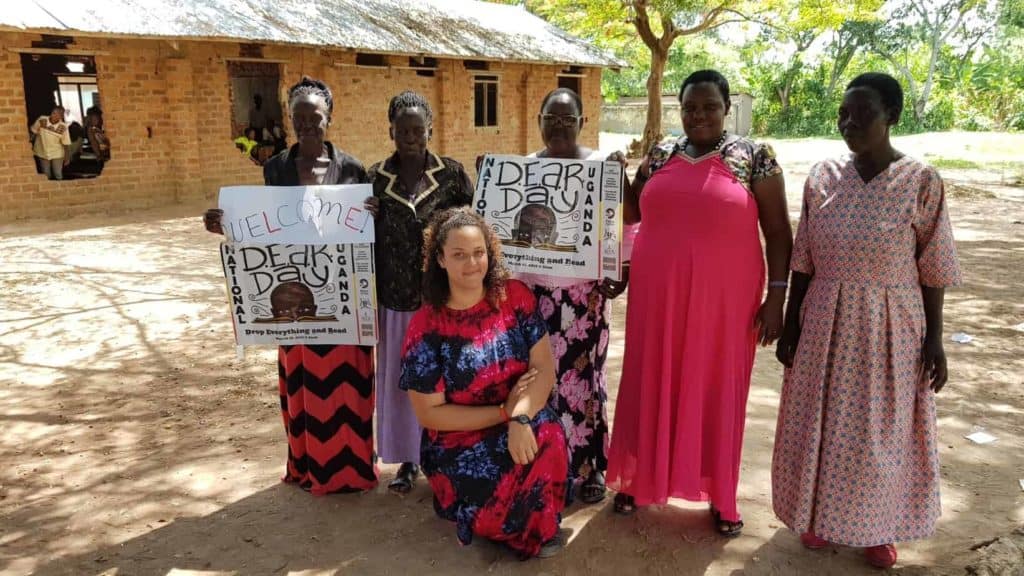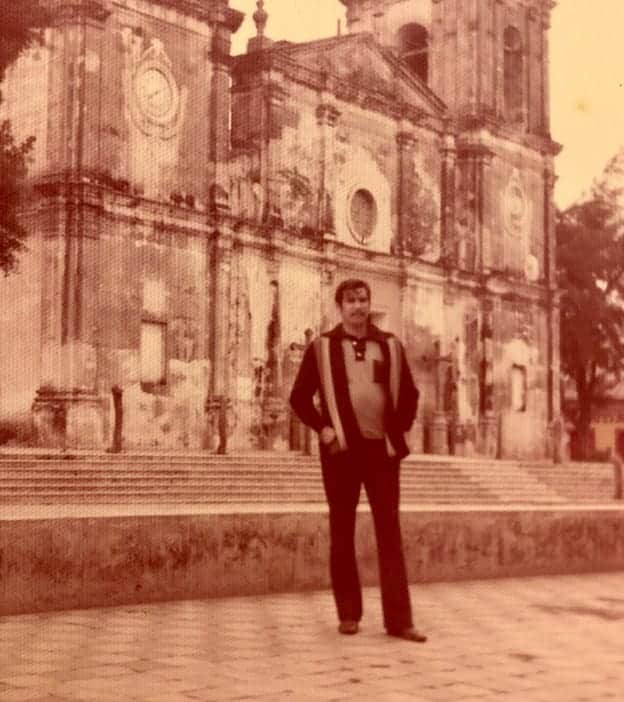Two former Peace Corps volunteers encourage Sagrado students to take advantage of this opportunity for growth.

By the Internationalization and Intercollegiate Relations Office
Sagrado recently became the first and only university in Puerto Rico to offer undergraduate students the opportunity to become certified with the Peace Corps through the Peace Corps Prep (PC Prep) program. After the official launch, several Puerto Ricans who have volunteered with the Peace Corps came to share their experiences and encourage others to take advantage of the opportunity for transformation and growth they enjoyed so much.
One of them was Shelyanne Adorno, a young woman who completed her time as a volunteer in March 2020. As an undergraduate, Shelyanne met a professor who had been a missionary in Slovakia. The passion with which he spoke about his experience, added to the interest aroused by her own search, motivated Shelyanne to volunteer to teach science in Mozambique. However, since Peace Corps volunteers go where the need is greatest, she served instead in a city in eastern Uganda, Africa, as a fourth grade English literacy specialist. “Education there is different. Many dialects, many languages are spoken in Uganda, but in fourth grade, the children transition from their dialect to English and I had the opportunity to teach them phonics,” Shelyanne recalled.
As for Carlos Rentas, he worked in the Ponce camp in the 1970s as a Barrio Trainer for hundreds of Peace Corps volunteers who were preparing to go on missions to different Spanish-speaking countries. The training in Puerto Rico helped American volunteers to learn Spanish and become familiar with the Latino culture. Carlos helped train volunteers to become agents of change through communication skills that addressed knowledge of verbal and non-verbal language, intercultural training, and facts about the host country. For this last skill, representatives from those countries would come and spend one of the three months of training preparing volunteers to carry out their future jobs. “In the evenings, outside of working hours, we visited the volunteers in the homes of the Puerto Rican families who were hosting them in order to evaluate how their immersion was going and interact with them outside the environment of the (training) center,” said Carlos, who traveled to various Latin American countries as part of those missions.

Although there is a generational gap between Carlos and Shelyanne, as well as differences between the experiences of the 70s in Latin America and those of 2018 in Africa, it is also worth noting their shared opinions about the learning, challenges, and beautiful memories that both have of their time in the Peace Corps. For both, being Puerto Rican in other countries distinguished them culturally while opening doors for them to showcase their unique attributes. “Cultures are not superior to each other, they are just different,” said Carlos. “You have to learn to adapt in terms of others and of yourself,” Shelyanne added. “They have plantains in Uganda, but they only cooked things by boiling them. I made mofongo, tostones, amarillos, and they were delighted! What you know, you can share, and that is a way of showing them that what’s different is also good,” she added. “The dose of humility that you develop when accepting that, that you can learn from others just as others can learn from you, is a great challenge that brings great satisfaction,” Carlos said.
The impact of the Peace Corps on their lives
After his years of service, Carlos continued his studies and later worked in managerial positions at multinational companies, preserving the valuable knowledge acquired through his experience. “Big learning comes when you realize that you are stronger than you think. You learn to accept and understand that, together with others, we have the ability to find a solution, if there is one, and if not, to move on,” he said. Among his fondest memories, he treasures what he learned from the humble community of Villa La Trinidad, in Honduras, the day the valve to a well built between Peace Corps volunteers and residents of the village was opened for the first time. The well would supply drinking water to homes in the area. “The sparkle in the children’s eyes, their joy at seeing the water run and being able to get under the stream is unforgettable. Within that material poverty, there was a lot of spiritual wealth and a lot of character wealth, and that has stayed with me for the rest of my life,” he recalled excitedly.
Shelyanne also relived anecdotes from her host family. “All the times I tasted their dishes, wore traditional clothing, or spoke their language, it meant a lot to them, and equally to me. These experiences are not easy, but they are rewarding,” she said. During her time in Uganda, Shelyanne became involved in programs that helped improve personal hygiene, as well as others that served to empower girls and give them tools to recognize their value beyond patriarchal customs. She taught them, for example, how to make reusable sanitary napkins, as well as bracelets, earrings, and necklaces they could create and sell to generate their own income. “The girls left (the program) motivated, happy, and knowing that they could study and do great things with their lives,” she said with satisfaction.
Volunteering with the Peace Corps requires a high level of commitment to community outreach goals. There are currently over 400 Puerto Rican Returned Peace Corps Volunteers. Nine of them are Sagrado alumni, each with impressive and transformative stories.
The PC Prep certificate program strengthens the cross-cultural skills of Sagrado students while aligning with Sagrado’s mission, and it prepares those students to become agents of change and to make a difference in the world. Those interested in additional information about the PC Prep program can visit www.sagrado.edu/pcprep or write to pcprep@sagrado.edu.